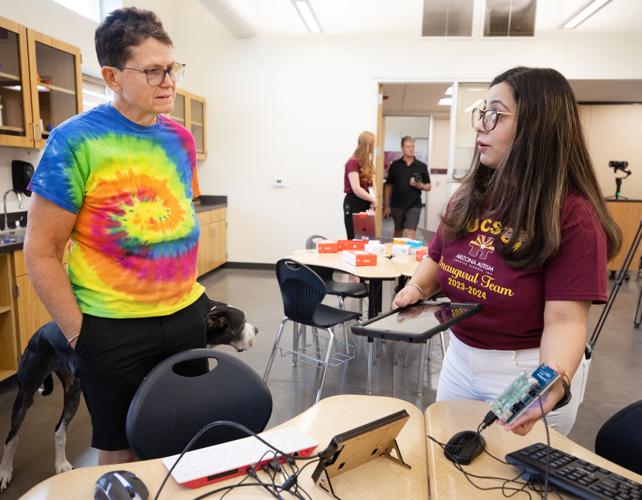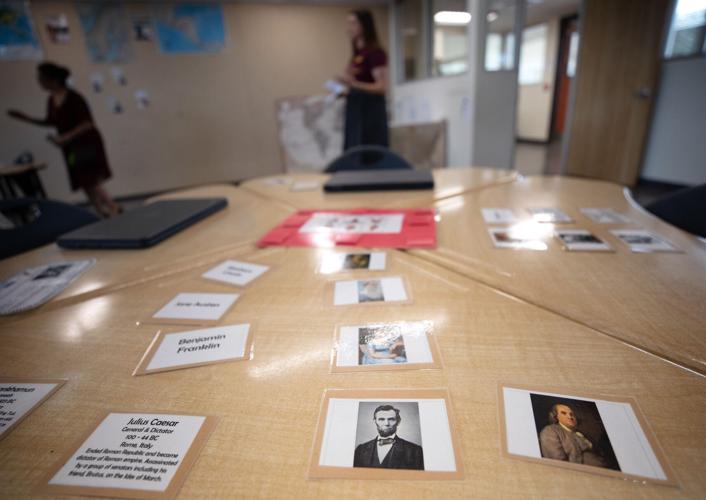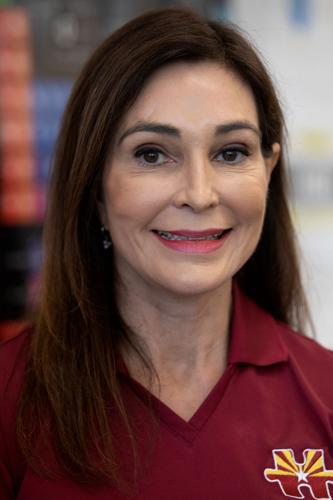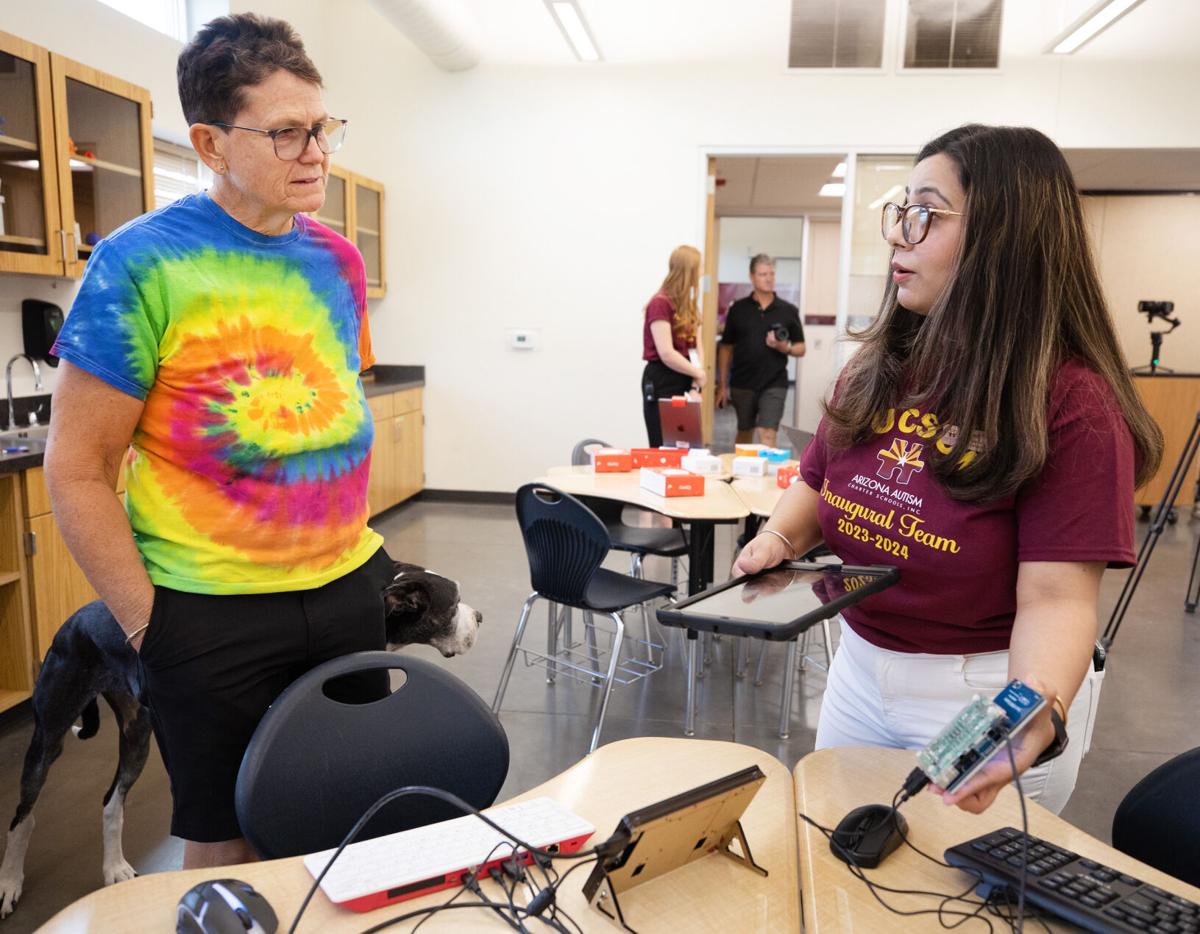Tucson’s newest charter school is dedicated to getting students with autism “college and career ready.”
The fully-accredited school, which enrolls students grades 6-12, is part of the Arizona Autism Charter Schools (AACS) network. Tucson Upper School Campus incorporates career and technical education into its education plan, following the academy model employed by some public schools.
“Our high school students will have opportunities to earn the career and technical education credits that lead to industry certifications in technology fields, culinary and other high needs fields,” explained Diana Diaz-Harrison, founder and executive director of AACS.
She said much of the school’s foundation is “therapeutic support.” Tucson Upper School also brings more STEAM and project based-learning into the core, Diaz-Harrison said. STEAM stands for science, technology, engineering, arts and mathematics.
Middle school students will have foundations in academics. When students enter high school, they will begin career exploration. As 10th graders, they’ll start figuring out which career and technical education (CTE) courses are a good fit for them.
Choices include culinary, marketing, photography and other career paths.

Flash cards of historical figures lay on a table in a social studies classroom during an open house for the new Arizona Autism Charter Schools’ Tucson campus.
Vocational education can be a great option for students with autism, said Kate Elliott, executive director of the Autism Society of Southern Arizona.
Elliott was a speaker Friday at AACS Tucson Upper School Campus’s ribbon cutting. Diaz-Harrison and her team consulted with Elliott’s organization when developing their school plan.
“Vocational jobs are beautiful places to be able to gain independence and employment,” Elliott said. “What we were seeing in the community (was) people were finding a hard time finding high schools and a hard time finding that vocational education (for autistic students).”
Still, career and technical education isn’t necessarily a fit for all autistic students, Elliott said.
“Autism is such a wide and varied spectrum, that there’s a lot of students that will go on to college and seek professional careers.”
Rebecca Hartzell, an associate professor at the University of Arizona school of education, also said that career and technical education isn’t right for every student with autism.
Hartzell specializes in autism and is a former elementary and special education teacher.
“I think in some cases, it might be a good fit,” she said, adding: “I would not have a problem saying that, in my opinion, in most cases, it’s not necessarily the best option.”
Hartzell also said she sees drawbacks to schools specifically geared toward students with autism.
“My research shows that when kiddos with autism are interacting frequently with their typically developing peers, that their social skills get better,” Hartzell said. “They have that model of what typical interactions with their peers look like.”
Its first year, AACS Tucson will enroll about 50 students, Diaz-Harrison said. The student-to-staff ratio will hover around 4:1, she said.
“High school teachers have to have a certification in their subject area,” Diaz-Harrison said. “A math teacher needs to be certified in math, and English, language arts, etc. If they have special education credentials that is preferred.”
Classes numbering about 10 students will have certified teachers, accompanied specialists like behavioral analysts.
The school is circumventing the nationwide teacher shortage by helping professionals earn their teaching certificates on the job, Diaz-Harrison explained.
“If they have a passion for our population and they are already certified in a subject area, we support them to get that special education training and certification.”
Hartzell said some families feel more comfortable sending their children to a specialized school.
“I certainly know some parents that have said, ‘this is the best thing for my kid,’ because every day in public school was a tough challenge … ‘I didn’t always feel like my child was wanted, that they’re welcome,’” Hartzell said.
“I think that can become a real problem.”
Diaz-Harrison said there is space for 50 students in Tucson Upper School Campus’s first cohort. “We want to ensure a good foundation and quality.”
Enrolled students do not necessarily have to have autism, Diaz-Harrison said, but outreach is directed towards families of autistic children.
It is paramount that educators maintain high expectations for their students when working with a group of similar students, Hartzell said.
“I feel like sometimes when all you do is work with kids with one type of disability, you tend to start handling things (much) the same way,” she said. “Sometimes I think we may not see there are other things that that child can do.”
Tucson Upper School Campus attendance is of no cost to enrolled families. It is funded by federal and state money, along with private sources. One source that helped bolster Diaz-Harrison’s vision was winning a $1 million award in 2022.
Student success will be measured by graduation rate and whether graduates engage in the workforce, maintaining their choice career path.
Statistics indicate Tucson Upper School’s quest will be an uphill battle. Recent numbers show 58% of American autistic adults in their early 20s have attained paid employment outside of the home, according to a study published in Autism in Adulthood. Additionally, those who are employed are underemployed or underpaid, the study says.
“We’re trying to reverse those statistics and give people on the spectrum an opportunity to engage in the workforce in higher paying in demand fields,” Diaz-Harrison said. “Every child has the right to be a fulfilled, productive citizen.”
Get your morning recap of today's local news and read the full stories here: http://tucne.ws/morning








